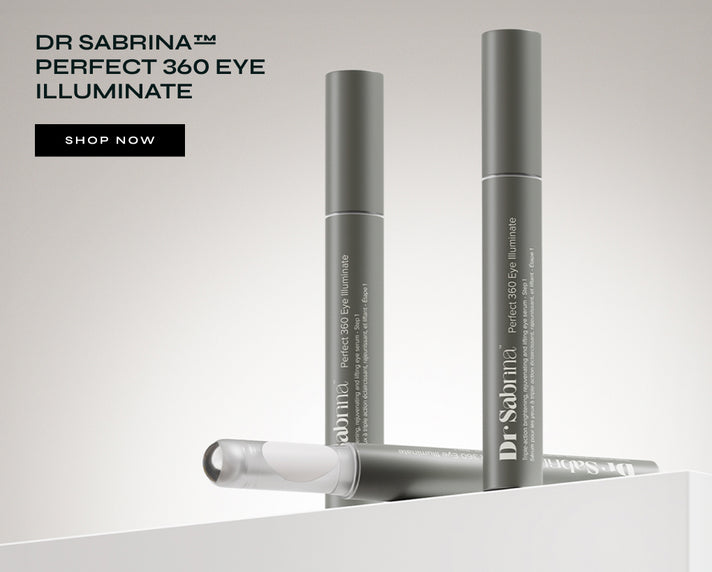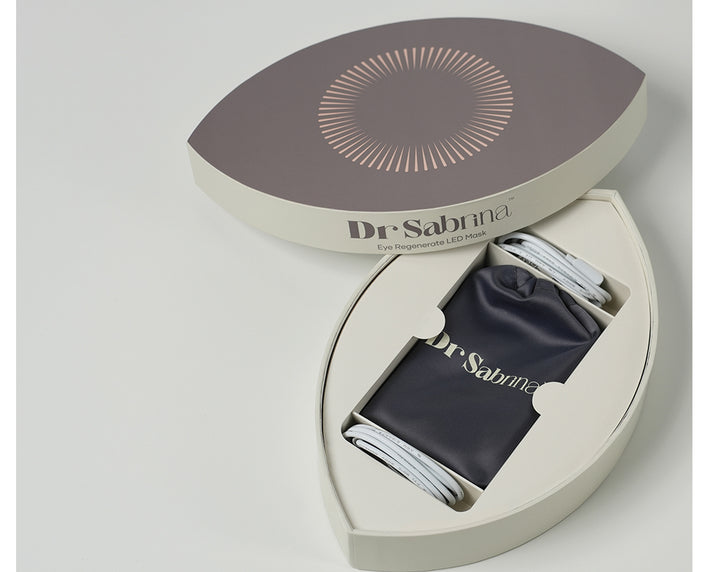Dark Circle
Puffy Eyes: Causes and Treatments

Puffy eyes are a real concern and tend to be resistant; they may come at any age. Sometimes, it happens to people in the morning, but there are instances of persistent puffiness during the whole day.
Learning about causes can help determine how to combat the under-eye puffiness effectively. This blog discusses puffy eye causes and outlines effective treatments and preventive measures.
Here are some main causes of puffy eyes:
- Sleep deprivation
- Allergies
- Too Much Salt Intake
- Ageing
- Dehydration
- Genetics
- Crying
- Sleeping Position
- Fluid retention
-
Sinus Problems
1. Sleep deprivation
One of the most common causes of under-eye puffiness is getting less sleep. Fluid builds up under your eyes when you do not have enough rest, and this leads to puffiness around the eyes.
2. Allergies
Reactions on the eyes are usually coupled with inflammation and swelling, making the eyelid swollen and enhanced under-eye puffy. Some of these contributors include pollen, dust, pet dander and even some skincare creams.
3. Too Much Salt Intake
Too much sodium in the diet may cause the body to retain fluids, thus causing people to wake up with puffy eyes. It causes the retention of excess body fluids, which can make the area around the eyes swell.
4. Ageing
With ageing, the tissues and muscles that support the eyelids weaken. The fat then tends to extend forward into the lower eyelids, thus causing under-eye puffiness that progresses over time.
5. Dehydration
When the body does not have enough water, it makes up for it by holding fluids, which results in puffiness. Drinking enough water is one of the easiest and most effective remedies for puffy eyes.
6. Genetics
At times, puffy eyes can be hereditary. If your family has a history of under-eye bags, you might be more prone to developing them.
7. Crying
Saline in tears also irritates the skin around the eyes, causing swelling and puffiness around them. Crying can also dilate blood vessels, causing redness and swelling around the eyes.
8. Sleeping Position
Under-eye puffiness can also occur when one sleeps on one's side or stomach since fluid pools beneath the eyes. Try sleeping on your back and use an additional pillow to mitigate this effect.
9. Fluid retention
One of the main physiological causes of puffy eyes is fluid retention, or edema. It happens when the tissues become too hydrated, particularly in the lower facial regions, such as beneath the eyes. Hormonal fluctuations, inadequate lymphatic drainage, specific drugs, or an underlying medical condition may be the cause of this.
10. Sinus Problems
Swelling and pressure around the eyes can result from sinus congestion brought on by colds, allergies, or sinus infections. Puffiness can result from fluid buildup in the surrounding tissues, particularly under the eyes, when your sinuses are clogged.
Here are Effective Puffy Eyes Treatments
Now that we have talked about the causes and treatments of puffy eyes, let's discuss how you could manage and prevent this problem.
1. Cold Compress
Wondering how to get rid of eye bags? Applying a cold compress is a quick and effective under eye puffiness treatment. You can use chilled spoons, cucumber slices, or cold tea bags to reduce swelling.
2. Hydration
Plenty of water helps flush out excess sodium and reduces fluid retention, making it an excellent cure for puffy eyes.
3. Proper Sleep Routine
Aim for at least 7-9 hours of quality sleep each night. Elevating your head slightly can also help prevent fluid accumulation under your eyes.
4. Reduce Salt Intake
Salty foods can cause puffy eyes in the morning. Fresh fruits, vegetables, and whole foods can be the best alternatives for processed or high-sodium meals.
5. Allergy
If allergies cause a swollen eyelid, taking antihistamines or avoiding the allergens that trigger your symptoms can help alleviate the condition. A doctor may recommend effective allergy treatments if required.
6. Skincare Products

Using a good dark circle corrector reduces puffiness and enhances the under-eye area's appearance. Choose a product containing caffeine, hyaluronic acid, and peptides.
7. Gentle Massage
Massaging your under-eye area can stimulate lymphatic drainage that decreases puffiness. Use your ring finger and tap and massage your under-eye area with an eye cream or serum.
8. Tea Bags
Cold tea bags, particularly those containing caffeine, can do wonders for under-eye puffiness treatments. The caffeine causes vasoconstriction, thus diminishing swelling and giving the under-eye area a more radiant look.
9. Balanced Diet
Maintaining a diet rich in antioxidants, vitamins, and minerals ensures healthy skin, which minimises puffiness in the under eye. Some foods that can help include cucumber, watermelon, and leafy greens.
10. Cosmetic Procedures
Some severe forms of under-eye puffiness should be treated through fillers, laser therapy, or surgery. For the proper under-eye puffiness treatment and advice, meet a dermatologist.
Prevention Tips for Puffy Eyes
- Use a silk pillowcase since it reduces friction and prevents liquid from building underneath the eyes.
- Shun excessive amounts of alcohol and caffeine since dehydration can make a puffy look worse.
- Always Remove Makeup Before Bed: Sleeping with makeup on can cause irritation and swelling.
- Stay Active: Regular exercise improves circulation and helps prevent fluid retention.
Final Thoughts
Understanding the Puffy Eyes and Treatments can help you take the necessary steps to reduce puffiness and maintain a refreshed appearance. From home remedies to professional treatments, there are many options to explore. Whether you need an effective cure for puffy eyes or want to find the best dark circle corrector online, making simple lifestyle changes can go a long way in keeping your eyes looking bright and youthful.
By identifying the under eye puffiness causes and using the right puffy eyes treatments, you can achieve a fresher, healthier look every day!
FAQs
1. What are the main causes of puffy eyes?
Common under-eye puffiness causes include lack of sleep, allergies, excessive salt intake, aging, dehydration, and genetics.
2. How can I reduce puffy eyes quickly?
Cold compress application, dark circle corrector purchased online, hydration, and a reduction in salt intake can aid in puffy eye treatments.
3. Why do I get puffy eyes in the morning?
Fluid retention, sleeping position, or dehydration may be the reason for puffy eyes in the morning. A head elevation at night can work.
4. What is the best under-eye puffiness treatment?
The best under eye puffiness treatment varies but includes cold compresses, eye creams with caffeine, and a healthy diet. Severe cases may need cosmetic procedures.
5. Can an allergy make an eyelid swollen?
Yes. Allergens are a normal cause of having a swollen eyelid. Removing allergens with the help of antihistamines will subside swelling or irritation.









